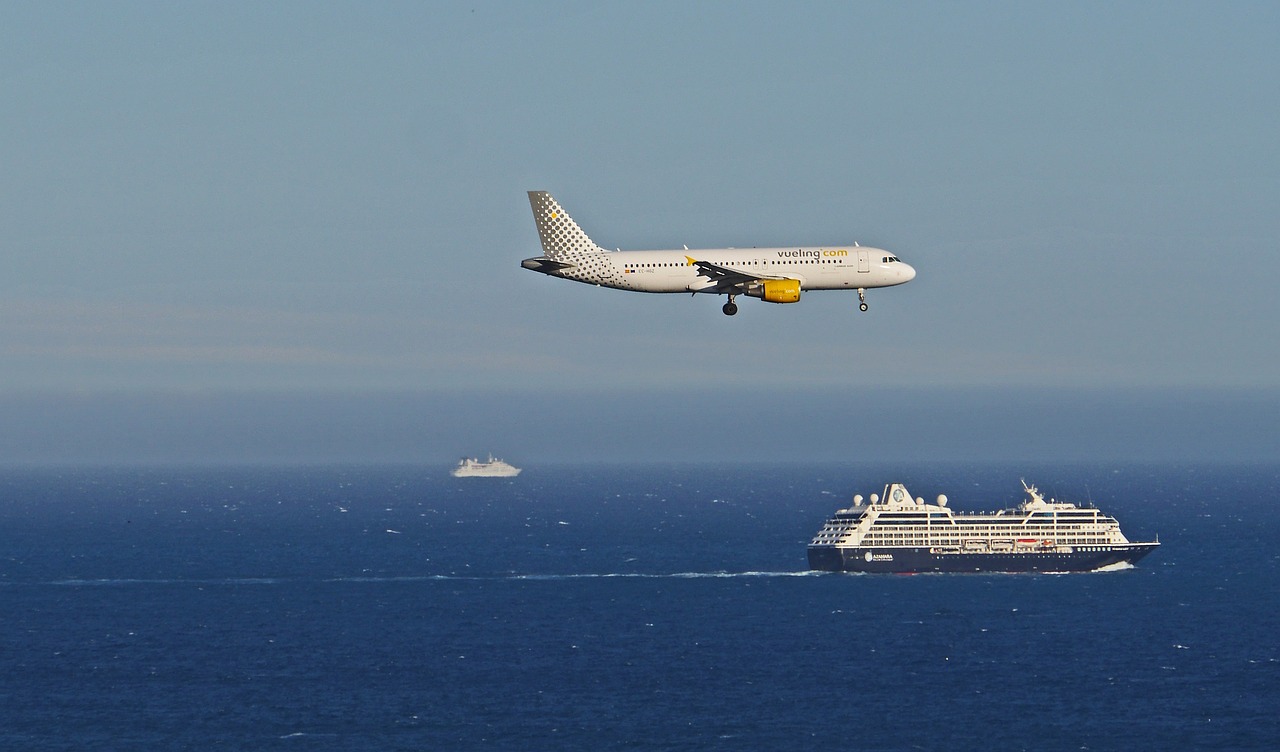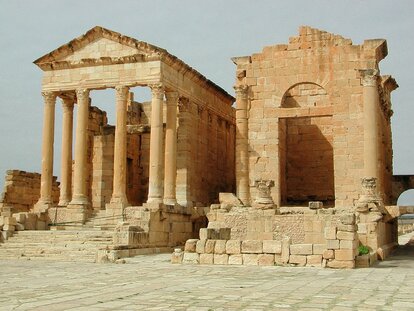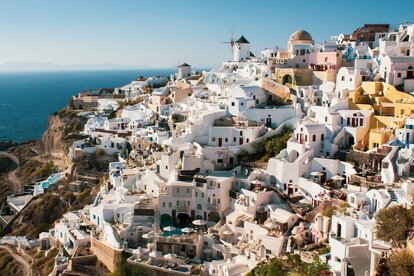Tourism
Mediterranean tourism: towards a positive change

Travel is the only thing you buy that makes you richer, said Hans Christian Andersen. The year 2022 saw a boom in the tourism industry. After what seemed like eternal confinements, people were eager to travel. More than 900 million tourists travelled that year, double that of 2021, though still 65% of pre-pandemic levels.
The Mediterranean enjoyed a significant increase in arrivals, reaching 83% of pre-COVID-19 figures, although the southern shore only reached 65%. Mediterranean countries on this side such as Lebanon, Tunisia, Algeria, Libya... are paying the price for their security bill, political instability and the pandemic. Tourism, the main source of foreign exchange, is weighing down economies in deep trouble with a current account deficit, currency shortages... These problems have been exacerbated by a sector that accounts for 11.4% of GDP and 10.5% of jobs.
Tourism growth could return to 2019 levels by the end of 2023, but it will require the industry to address both current and new challenges. Travel and tourism cannot be separated from the global context in which it operates. Whether that context is political, war, earthquakes, pandemics, inflation or economic turbulence. What happens around the world touches all aspects of tourism.
Travellers in 2023, in general, expect to find value for money and to travel closer to home in response to the challenging economic climate.
The projected growth rate builds confidence in the sector, with tourism GDP set to grow by 5.8% annually until 2032, outpacing the growth of the overall economy.
The Mediterranean is the world's leading tourism area with 32% of international arrivals and a third of global receipts, and tourism movement is expected to reach a record of more than 1.8 billion travellers crossing international borders by 2030. Whether this translates into opportunity or disaster will depend on how this growth is managed and also on ensuring that as it continues to grow it benefits all people in host countries and is in line with the Sustainable Development Goals.

Tunez
© PixabayThe tourism industry creates opportunities for societies and the economy. However, it is generating significant environmental and social costs and is responsible for 12% of total global greenhouse gas emissions. These emissions will increase by 20% by 2030. This puts at risk the viability of the industry itself, which has a vital role to play in curbing climate change and strengthening communities.
The sector must find ways to respond: how increasingly scarce natural resources can be managed wisely; how economic growth can be aligned with the social and economic needs of local populations and communities; and how to preserve the environment.
Tourism development strategies and practices must increasingly be designed with the objective of promoting more resource-efficient initiatives that are aligned with sustainable consumption and production objectives.
The future of tourism lies in harnessing the capabilities of digitalisation and innovation, big data analytics, blockchain technologies, Internet of Things, robotics, etc. Therefore, there is a need to capitalise on the highly skilled employment opportunities that are being generated in fields related to innovation in tourism.
Beyond the direct employment generated by tourism and hospitality, there are large indirect opportunities that provide benefits to businesses that cater to the visitor experience in sectors such as accommodation, food and beverage, creative and cultural arts, entertainment and recreation, agriculture, manufacturing, banking and finance. The cross-cutting nature of tourism and its impact on 70 other economic sectors positions it as a cash multiplier in global development strategies.

Santorini, Greece
© PixabayBut positive change is needed. In the light of recent events, uncertainty and the continuing challenge posed by climate change, crises, conflicts, insecurity and international competition, it is necessary to rethink the model, innovate and find new ways of marketing, reinvent ourselves, work with the territories, review social tourism, care for heritage, and have a sustainable vision in order to remain an attractive destination.
Tourism in the Mediterranean is a force that can accelerate human development, social and economic inclusion, increased entrepreneurship and self-employment. There is an urgent need to boost regional cooperation to consolidate leadership and a need to expand the share of the tourism market to generate income, create jobs, reduce poverty and contribute to peace on both shores of the Mediterranean.
The rich history and culture of the Mediterranean and its diverse nature make the region highly competitive in the global tourism industry. The bid must help build a more inclusive and resilient sector that can drive economic development, reduce poverty and improve sustainability.
Anwar Zibaoui
Specialised in economics and international relations and business internationalisation. Expert on the Mediterranean world, he seeks to strengthen mutual knowledge and economic and business ties between the countries of Europe-Africa-Middle East. He has held and continues to hold responsibilities in international organisations and various companies in Europe, the Middle East and Latin America. He writes for and participates in numerous Spanish and international media. He organises international economic events and has lectured at various conferences and universities.
